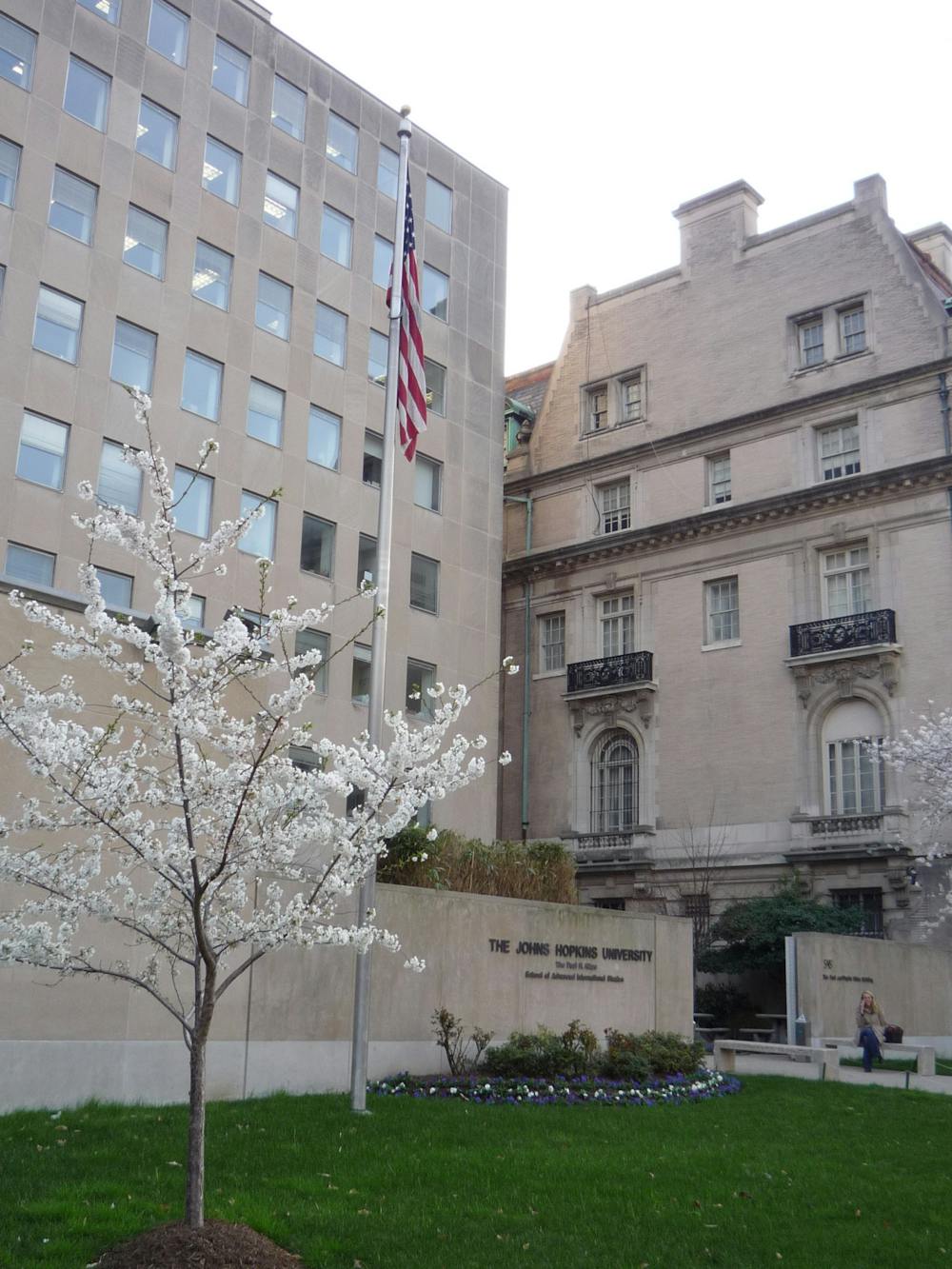Professors Hal Brands and Francis Gavin from the Hopkins School of Advanced International Studies (SAIS) discussed the future of U.S. political strategy in light of the COVID-19 pandemic on Oct 15. The event also served as a preview for students interested in their upcoming spring course, Kissinger Seminar on American Grand Strategy.
Gavin explained in an interview with The News-Letter that the course strives to expose students to the history of U.S. foreign policy, as well as a way of connecting undergraduates to resources at SAIS.
“The whole point of the class is to give the students the tools and the skills to make their own independent assessments, to critically evaluate and access evidence to make their own arguments,“ he said.
During the event, Brands and Gavin discussed topics concerning U.S.-China relations, including reglobalization, deglobalization and the uncertainty of COVID-19’s long-term effects.
First-year SAIS student Zach Wheeler emphasized in an interview with The News-Letter the importance of examining what the future will look like post-COVID-19.
“It’s a really salient topic that obviously has to be talked about,” Wheeler said. “I wish hundreds of students were at that event.”
Brands began the talk by highlighting how difficult it is to effectively predict the outcome of the crisis. There is still a lot of uncertainty concerning when the world will be free of the virus, despite the efforts of many institutions and researchers to control its spread.
Despite this uncertainty Brands provided two different possible futures for the nation, both of which are dependent on the speed and distribution of a safe and effective vaccine.
“One scenario is Operation Warp Speed or the British vaccine project goes incredibly well and we have a vaccine that is safe and effective and ready for mass distribution in January or February of 2021,” Brands said. “If that’s the case, then some of the long-term impacts of the crisis might be more muted.”
He described the second scenario as a world where a safe vaccine is not available until August or September of 2021.
“If that’s the case, the political, the economic, the social, the geopolitical disruptions of the crisis will be much more severe,” Brands said.
There are also questions about the extent of the crisis’ damages. There are some who believe that the pre-COVID-19 and post-COVID-19 world will largely remain the same, while there are some who believe that this pandemic will transform everything.
“The most popular view now is somewhere in between. It might be like the 1970s, where certain aspects of the order don’t need to be revitalized, whereas certain other issues — global public health, global migration — demand a reordering moment,” Gavin said.
Brands and Gavin continued to explain how the pandemic has affected other countries’ views of the U.S. They noted that, to neighboring countries, the United States’ handling of COVID-19 has exposed weakness and lack of leadership. They emphasized that moving forward there needs to be reform within the country and unity between countries.
While it’s easy to support the unity of democratic nations, the professors explained that many critics disagree on how this unity can occur between rival countries, such as the United States and China. Some say that it is more important to work with China on matters such as COVID-19 and climate change. Others say we can best to increase competition by creating leverage.
Freshman William Hu agreed with the points made by the speakers.
“One thing Professor Brands and Professor Gavin specifically talked about was how cooperation between China and the U.S. is not actually necessary for major climate change reform,” Hu said. “This is an important moment because when they were talking about COVID-19, they said there need to be global connections.”
Likewise, Wheeler found this part of the discussion particularly fascinating because he disagreed with the views of Brands and Gavin.
“Because of the transnational nature of climate change, there has to be cooperation, not competition, between the United States, China, India and the European nations,” he said.
In conclusion, Brands stressed that politicians and leaders of nations need to find a balance between to create a world where progress is made, global health and climate change problems are responsibly addressed and institutions are refined. As current situations stand, there has been a growing divide instead of much-needed unity.
“The need for global cooperation has never been higher, but the challenges to getting that cooperation also hasn’t been this high either because of geopolitical strains in the world,” he said.
Hu encouraged everyone to vote in the upcoming election.
“They were talking about how important this upcoming election was because this international community knows that depending on who becomes the next president, the whole climate changes,” he said.
Students interested in this topic can find more information about Brands and Gavin’s work in their book COVID-19 and World Order: The Future of Conflict, Competition, and Cooperation on Project Muse for free.





